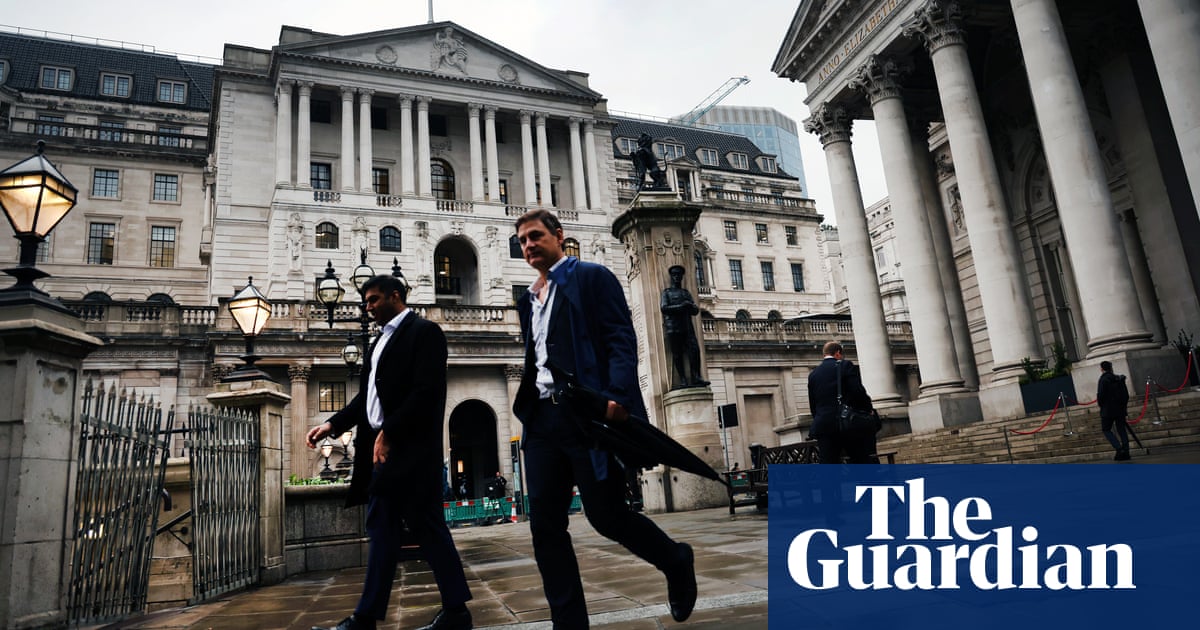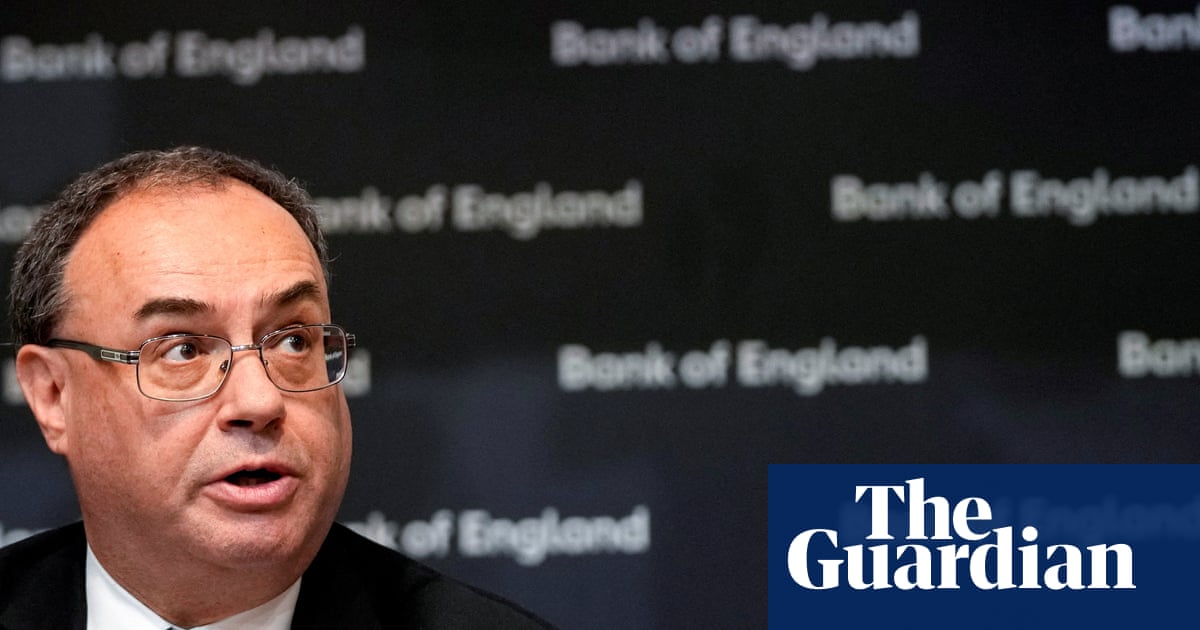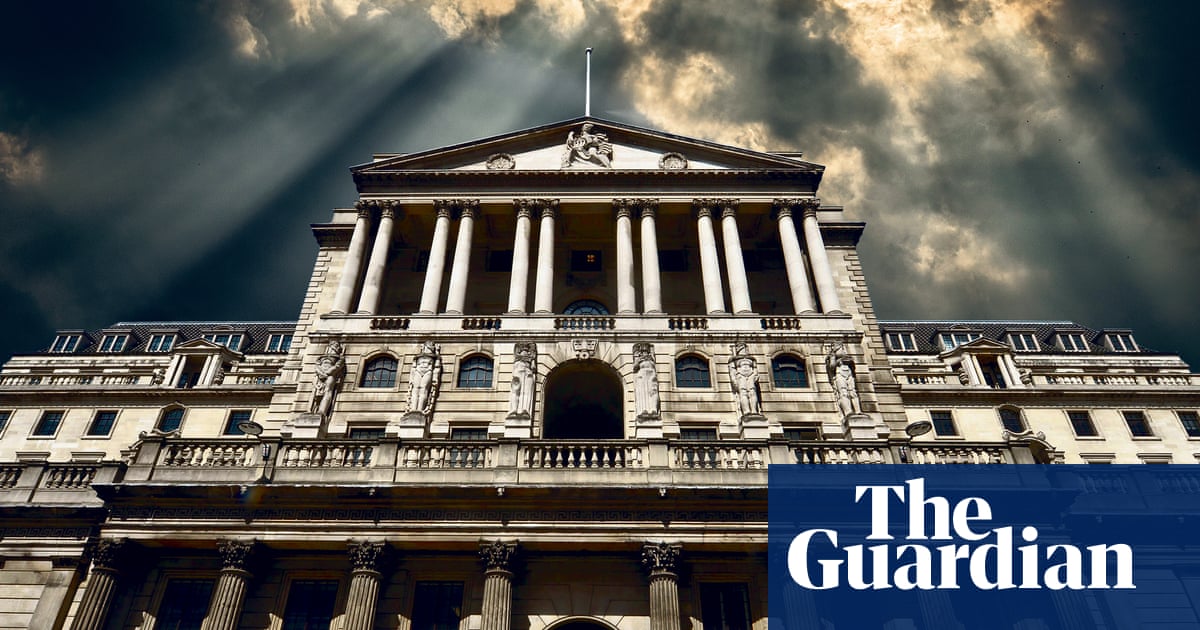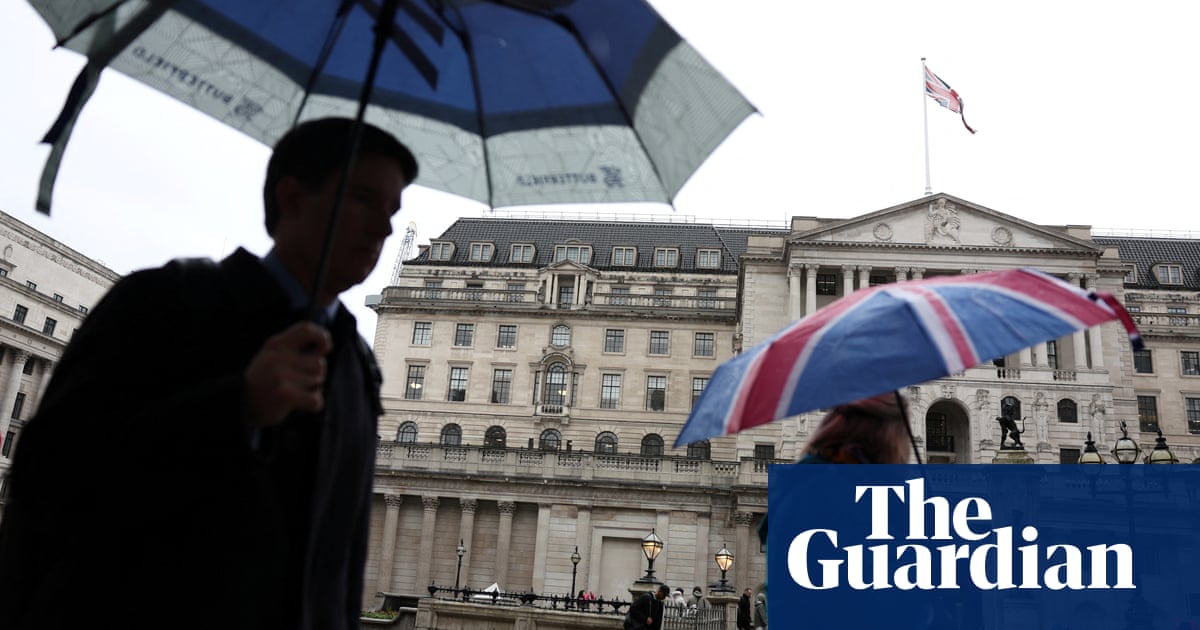
Closing summary
Time to recap
Britain is facing its worst recession in 300 years, according to the latest scenario from the Bank of England. The BoE estimates that GDP will plunge by 25% this quarter, with unemployment hitting 9%, due to the abrupt halt to activity under the Covid-19 lockdowns.
The BoE’s scenario shows the economy shrinking by 14% during 2020 as a whole, followed by a recovery of 15% in 2021.
BoE governor Andrew Bailey said the slump was unprecedented, but he hopes GDP will bounce back once the pandemic is over.
Economists cautioned that the economy may not recover as strongly as the Bank hopes, due to the damage caused by the virus.
The Office for National Statistics has reported that two-thirds of firms have tapped the UK Job Retention scheme and furloughed some workers. It also estimates that roughly a quarter of companies are currently closed, particularly in the hospitality sector.
In America, another 3.1 million people have lost their jobs last week, lifting the total to around 33 million.
But stock markets have jumped in Europe and in New York, on hopes that lockdown measures will soon be eased successfully.
Hugh Grieves, US equities investment manager at Premier Miton, explains:
US Initial Jobless Claims fell to 3.2m, down from the previous week’s figure of 3.8m and half the peak recorded 5 weeks ago, but roughly in line with economists’ forecasts. These figures support estimates of the April unemployment figure, to be released tomorrow, to reach a shocking 16%.
“Markets, however, are now looking beyond the employment data and forward to the potential recovery. With some US states now beginning to reopen for business, investors will be watching closely to see how quickly employees return to work and how rapidly economic activity bounces back.
Goodnight. GW
In these extraordinary times, the Guardian’s editorial independence has never been more important. Because no one sets our agenda, or edits our editor, we can keep delivering quality, trustworthy, fact-checked journalism each and every day. Free from commercial or political bias, we can report fearlessly on world events and challenge those in power.
Your support protects the Guardian’s independence. We believe every one of us deserves equal access to accurate news and calm explanation. No matter how unpredictable the future feels, we will remain with you, delivering high quality news so we can all make critical decisions about our lives, health and security – based on fact, not fiction.
Support the Guardian from as little as $1 – and it only takes a minute. Thank you.
A late rally has lifted the UK stock market to its highest level in a week.
The FTSE 100 has just closed 82 points higher at 5935, a gain of 1.4%.
That’s its highest level since April 30th, last Thursday.
Mining group Anglo American led the risers, up 7%, followed by UK retailer JD Sports.
But BT had a grim day - falling 8% to just 106p, which I think is its lowest closing level since 2009. Investors aren’t happy that the telco has suspended its dividend to fund next-generation broadband networks.
The International Monetary Fund says it has approved requests for emergency pandemic aid totalling $18bn, from 50 of its 189 members, and is working through another 50 requests.
Reuters has more details;
The IMF’s executive board was working through requests at record speed and would consider a request from Egypt for both emergency financing and a stand-by lending arrangement on May 11, spokesman Gerry Rice told reporters in an online briefing.
“It’s an IMF moving at an unprecedented speed in an unprecedented way to meet this unprecedented challenge which we’re all facing,” he said, noting the Fund had also temporarily suspended payments on IMF debts for 25 of the poorest countries.
Luxury goods out of fashion in lockdown
The gloom in the luxury goods sector is deepening even though some countries have started to relax their coronavirus lockdowns.
Global sales of luxury handbags, clothes, watches and cosmetics are set to slump by 50% to 60% between April and June, compared with an estimated 25% decline in the first three months of the year, the consultancy Bain says in its spring report.
For 2020 as a whole, Bain is predicting that luxury sales will fall by 20% to 35%, and it will take two to three years to return to last year’s sales of $303bn. Shops in China have started to reopen and Chinese consumers are expected to account for nearly half the market by 2025.
Bain partner and report co-author Federico Levato says:
“As consumers slowly emerge from lockdowns, the way they see the world will have changed and luxury brands will need to adapt.
Safety in store will be mandatory, paired with the magic of the luxury experience: creative ways to attract customers to store, or to get the product to the customer, will make the difference.”
Luxury accessories such as handbags have fared a bit better while watch sales declined the most, because of a lack of online sales platforms.
Ronald Temple, Head of US equity at Lazard Asset Management, doesn’t share the exuberance in the markets today.
“The US labor market is in the worst position since the Great Depression and is unlikely to improve sustainably anytime soon. Until widespread testing, an effective therapy, and a vaccine are in place, any improvement in employment is likely to be temporary.
Premature efforts to reopen economies undermine our progress in controlling the pandemic and risk extending the duration of the downturn.”
The Nasdaq has shrugged off Covid-19 fears because investors are rushing into “giant tech names that are considered more resilient in this crisis”, explained Marios Hadjikyriacos of XM.
That includes Amazon (up 27% this year) and Microsoft (up 16%).
Remarkably, the US Nasdaq index has now caught up all this year’s losses.
The tech-focused share index is now flat for 2020, thanks to strong recoveries in major technology companies such as Apple, Amazon and Microsoft.
As expected, the US stock market has indeed jumped in early trading.
Dow: up 263 points or 1.1% at 23,928
S&P 500: up 38 points or 1.3% at 2886
Nasdaq: up 118 points or 1.3% at 8,973
Investors may be taking some comfort that at least the pace of US jobless claims is slowing (but still terribly high).
European stock markets are holding onto their earlier gains, despite the latest grim US jobs data.
Wall Street is expected to open higher too, with the Dow up around 1% in pre-market trading.
The spectre of unemployment is haunting America - but in some states more than others:
Before the Covid-19 crisis began, America had never lost a million jobs in a single week before.
It has now suffered seven consecutive weeks of massive job losses, as firms have slashed staff under the coronavirus lockdown.
Our US business editor Dominic Rushe says some US states are really struggling to cope with the unprecedented surge in unemployment.
He writes:
The pace of layoffs has overwhelmed state unemployment systems across the country. Over a million people in North Carolina have now made unemployment insurance benefit claims, equivalent to 20% of the state’s workforce.
Some 4 million have applied in California and the state’s jobless benefits fund is “very close” to running out, governor Gavin Newsom said this week.
US initial jobless claims drop to 3.1 million
Newsflash: Another 3.1 million Americans filed new claims for unemployment benefit last week, as the US jobless crisis rages.
That’s down from 3.8m in the previous week, but still another awful number.
It lifts the total number of new ‘initial claims’ for welfare since the crisis began to around 33 million people.
The US Labor Department also reports that 22.6 million people filed ‘continued claims’ (meaning they’ve been receiving help for more than one week).
Stocks are continuing to rise in London, seemingly lifted by hopes that some UK lockdown restrictions will be eased soon.
The FTSE 100 is now up 63 points or 1.1% at 5917, after the government confirmed that Boris Johnson will reveal his strategy on Sunday evening:
Connor Campbell of SpreadEx says:
With oil, mining and banking stocks all in the green, the FTSE added another 0.9% as the session went on, sticking its nose across 5900 for the first time in a week. This would suggest that investors have swallowed the bitter 14% contraction in 2020 pill offered up by the BoE, thanks to the spoonful of sugar that is the expectation of a 15% rebound in 2021.
Elsewhere the markets were just as perky, investors continuing to express their relief at the various ongoing and soon-to-be unveiled lockdown-easing measures around the globe. The DAX passed 10700 as it climbed 0.8%, while the CAC struck 4470 following a 50 point increase.
Larry Elliott: BoE finds nuggets of hope
Our economic editor Larry Elliott says the BoE is pinning its hopes on a V-shaped recovery to GDP - and pushing banks to do their bit.
One of the key messages from the Bank to the high street lenders was that they stand to lose more by not lending than they will by lending freely, because there will be more long-term scarring of the economy, more companies going bust and more losses for them to swallow. At his press conference, the Bank’s governor, Andrew Bailey, said he was ramming home this point to lenders at at every opportunity.
But is this forecast too optimistic? Quite possibly, Larry adds:
Forecasting is tough at the best of times: in the current circumstances – where there is uncertainty about how fast restrictions will be lifted, how consumers will behave, and whether there will be a second wave of infection – it is all but impossible.
All that can really be said is that the risks to the Bank’s scenario are skewed heavily to the downside. Threadneedle Street decided against providing more stimulus at this week’s meeting, but it is only a question of time.
In the event that the pandemic does return, Bailey said the Bank would find new tools from somewhere. That might sound a bit like Mr Micawber saying “something will turn up” but broadly sums up current thinking: this is bad, but somehow or other we will get through it.












